The Ministry of Defence (MOD) has outlined measures to protect critical sub-sea cables in the North Sea and Baltic Sea, following concerns about potential threats from Russia’s shadow fleet.
Defence Minister Luke Pollard detailed the government’s efforts in response to written parliamentary questions from Graeme Downie MP (Labour, Dunfermline and Dollar).
Addressing concerns about the security of sub-sea cables in the North Sea, Pollard stated:
“The UK Government constantly monitors and regularly assesses the security of critical national infrastructure, including energy and telecommunications assets.”
Pollard highlighted the importance of these measures following the damage to the Estlink2 cable between Finland and Estonia on 25 December 2024, which disrupted communications and energy flow in the region.
Assistance to Baltic Sea Allies
When asked whether the UK had offered support to Finland for protecting sub-sea cables in the Baltic, Pollard confirmed that the UK had acted under its leadership role within the Joint Expeditionary Force (JEF).
The JEF activated a ‘Response Option’, known as NORDIC WARDEN, which uses AI to track potential threats and monitor the Russian shadow fleet. Pollard explained:
“This demonstrates both the UK and JEF nations’ commitment to assuring critical undersea infrastructure and responding to potential threats. Recent incidents of damage to sub-sea cables underline the importance of partners continuing to work together on shared challenges in the region.”
He added that the Defence Secretary had engaged directly with affected NATO allies following the Estlink2 incident, with NORDIC WARDEN complementing NATO’s planned and ongoing responses.
Pollard reiterated the UK’s determination to safeguard its infrastructure and interests, stating: “Our adversaries should be in no doubt of our steadfast determination and formidable ability to protect the UK and our interests.”


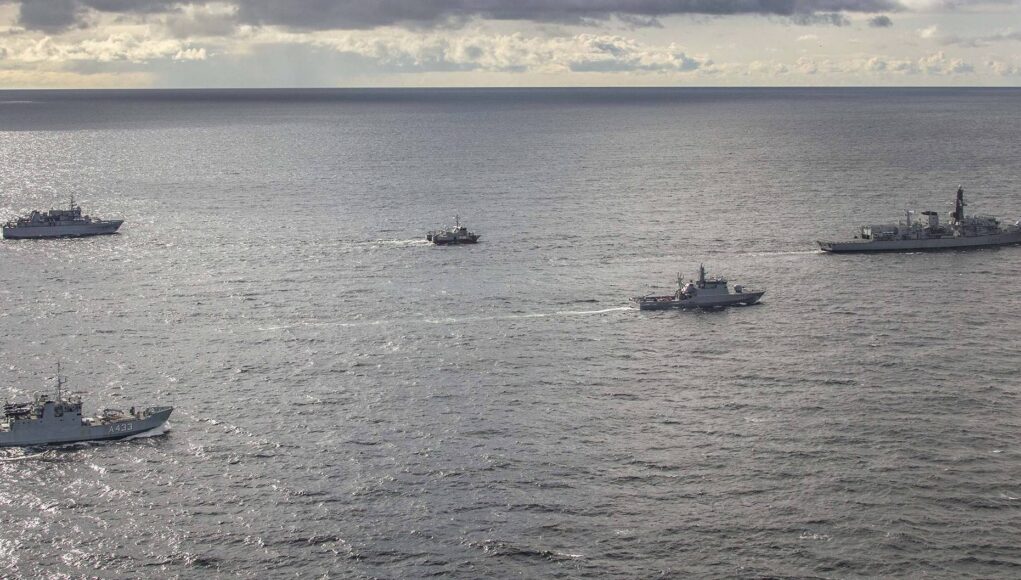
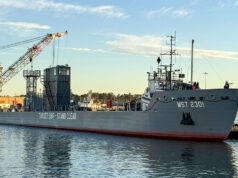
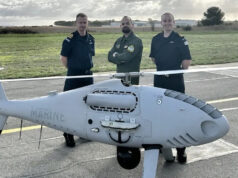
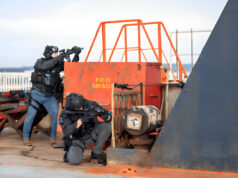
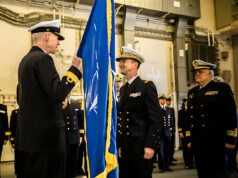
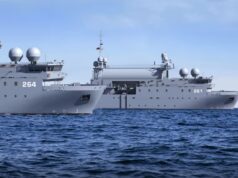
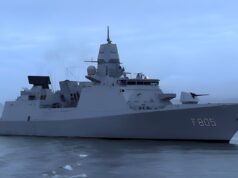
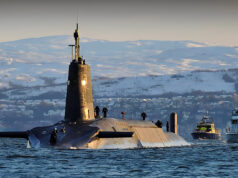
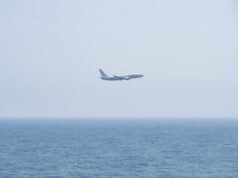
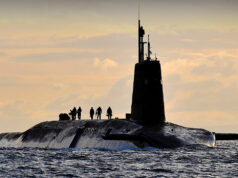
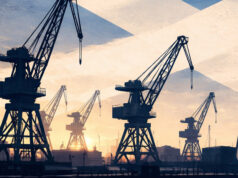

Nothing in that statement beyond the usual strong words, but of course they won’t give the real details anyway would they.
They may gain the info but will have ZERO assets to execute enforcement of anything. That has been the way of the UK for decades, great at finding out but with little to do about it. We need real assets at sea that can counter any intrusion on our critial systems around the UK and further afield. But it will never happen as it the norm with the State. OK to talk the talk but you also have to walk the walk and that simply is not possible so the bad guy just does not care.
There are literally hundreds of patrol boats available to JEF countries and North European NATO members. The finding out is that hard but not the interdiction.
The daft thing is there are very suitable, and quite affordable ways to achieve this. Robust responses to rogue vessels, arrest, confiscation. The US Coast Guard do not mess around. Meanwhile British windbag politicians do what? Oh yeah, produce wind. Pleas tell me we are in a parallel universe.
Agree. Follow Finland’s recent example. Board any suspect vessel. Arrest the crew. Impound the ship. Confiscate hardware and equipment being used on civilian registered vessels that has a military purpose.
We do remember, the Iranian Tanker off Gib when the SF’s were deployed from RFA TIDEFORCE (to the armed chair admirals and politicians that is not an RN vessel, but a civilian crewed auxiliary with military adquals ( or as I like to say the fourth force) one those ship that supplies all your logistics).
We (and many of our allies) continue to be behind the curve on defence responses to the threat. We continue to be obsessed with platform centric solutions, especially surface units when the threat is asymmetrical and designed to disrupt and undermine. Our underwater capability is lamentable while we continue to send CTGs to the IndoPacific. We should be building more submarines, including SSKs with the ability to deploy UUVs and swimmers. We should operate many more seabed operations vessels with a variety of unmanned under water vehicles. We should improve our surveillance/ISTAR capabilities, including maritime patrol. And at the other end of the spectrum for example, we lack any form of ballistic air defence and our GBAD is also lamentable.
making it clear to all nation that the tampering of undersea cables will be seen as a warlike act and that’s potential victims have a right to defend its interests, if necessary by the use of force, but a constant presence along the cable network is needed and I see big flotillas of cetus like vessels on petrol alongside the world network as being a good way to start
Deploy the AI! Advise all that AI controlled explosive laden drone boats are in the area and if the AI detects a threat it will deal with that how it sees fit to protect its area.
With what actual military and intelligence resources are we actually stepping up our protection of the key infrastructure?
Answer is bog all and none.
It’s just rhetoric. Until we see more Poseidon MPA ordered. More drone and subsea warfare mother ships like RFA Proteus and RFA Sterling Castle and more type 26 and type 31 frigates (2-4 more type 26 and at least another batch of type 31s) then it’s all just hot air.
The UK needs desperately to return to a maritime and air warfare centric defence policy with real hard power enablers and big hitters.
It’s far far far overdue.
Or we could send the Proteus……..
🤣🤣🤣🤣🤣🤣🤣🤣🤣
and the ukrainian threat to nordstream ?